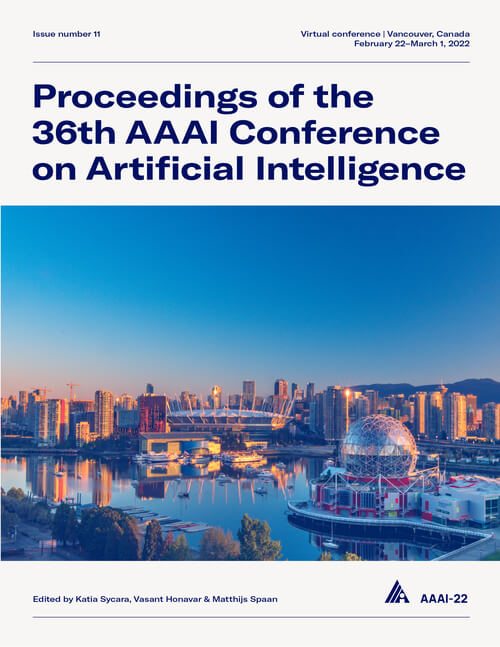Optimal Admission Control for Multiclass Queues with Time-Varying Arrival Rates via State Abstraction
DOI:
https://doi.org/10.1609/aaai.v36i9.21229Keywords:
Planning, Routing, And Scheduling (PRS), Machine Learning (ML)Abstract
We consider a novel queuing problem where the decision-maker must choose to accept or reject randomly arriving tasks into a no buffer queue which are processed by N identical servers. Each task has a price, which is a positive real number, and a class. Each class of task has a different price distribution, service rate, and arrives according to an inhomogenous Poisson process. The objective is to decide which tasks to accept so that the total price of tasks processed is maximised over a finite horizon. We formulate the problem using a discrete time Markov Decision Process (MDP) with a hybrid state space. We show that the optimal value function has a specific structure, which enables us to solve the hybrid MDP exactly. Moreover, we rigorously prove that as the gap between successive decision epochs grows smaller, the discrete time solution approaches the optimal solution to the original continuous time problem. To improve the scalability of our approach to a greater number of servers and task classes, we present an approximation based on state abstraction. We validate our approach on synthetic data, as well as a real financial fraud data set, which is the motivating application for this work.Downloads
Published
2022-06-28
How to Cite
Rigter, M., Dervovic, D., Hassanzadeh, P., Long, J., Zehtabi, P., & Magazzeni, D. (2022). Optimal Admission Control for Multiclass Queues with Time-Varying Arrival Rates via State Abstraction. Proceedings of the AAAI Conference on Artificial Intelligence, 36(9), 9918-9925. https://doi.org/10.1609/aaai.v36i9.21229
Issue
Section
AAAI Technical Track on Planning, Routing, and Scheduling

